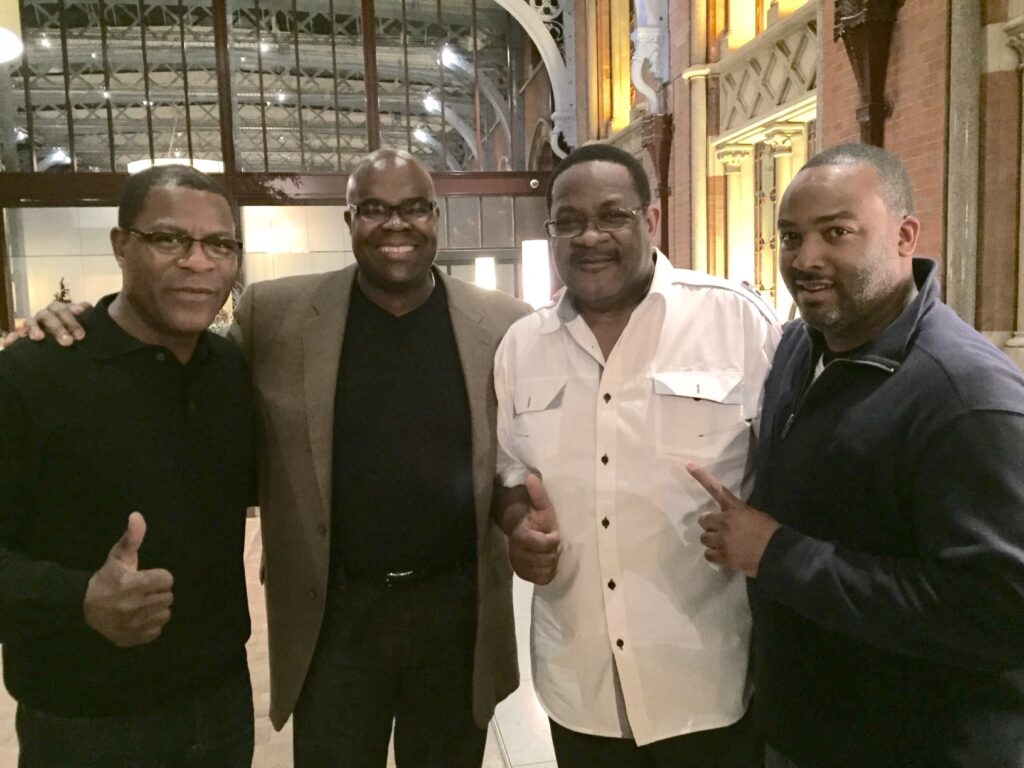( ENSPIRE News ) McDonald’s Lawsuit Total Number of Plaintiffs is Approaching 80
ENSPIRE Contributor: Taylor Groft
Twenty-seven new plaintiffs, all former Black McDonald’s franchisees, joined an ongoing federal lawsuit against the fast-food chain claiming the company engaged in systemic discrimination and denied them the same opportunities as White franchisees.
The new amended complaint now has 77 named plaintiffs in the lawsuit originally filed by 52 Black former franchisees on Sept. 1, 2020. The claims now include nearly 300 stores with compensatory damages that average between $4 million and $5 million per store, exclusive of punitive damages.
The plaintiffs allege McDonald’s sold itself as a recruiter and developer of Black talent, profited from its Black consumer base, and maintained a two-tier system that pigeonholed unsuspecting Black owners and assigned them horrible locations guaranteed to fail. This suit comes on the heels of a federal class-action lawsuit filed October 29 by current Black franchisees.

“McDonald’s is now fighting a four-front legal war. They are being sued by current and former Black operators, Black employees, and senior executives,” said James L. Ferraro, the lead attorney for both the current and former franchisee lawsuits. “As the pool of plaintiffs grows, there will be more pressure on the company to dispense with the public relations ploys and focus on how it can help its Black employees and franchisees.”
At the same time, there are calls for state pension funds to drop McDonald’s stock. States like New York, California, Ohio, and Florida have massive investments in McDonald’s. In Tennessee, Rep. Joe Towns has requested Treasurer David H. Lillard to divest the state’s holdings and reallocate the money toward companies “practicing good corporate citizenship.”
Ferraro said all these challenges are coming together because the company has turned a blind eye to obvious racial problems while promoting its public image.
McDonald’s once boasted a high of 377 Black franchisees in 1998. That number now stands at 186 even though McDonald’s has increased its stores from 15,086 to 36,059. The cash flow gap for Black franchisees more than tripled from 2010 to 2019, per National Black McDonald’s Operators Association (“NBMOA”) data.
Plaintiffs’ average annual sales of $2 million were more than $700,000 under McDonald’s national average of $2.7 million between 2011 and 2016 and $900,000 under the national average of $2.9 million in 2019.
The lawsuit claims McDonald’s was ruthless in steering Black operators toward the oldest, most decrepit stores in the toughest neighborhoods routinely rejected by White franchisees. This severely limited opportunities for expansion and growth, and far too often set in place a chain of events—low cash flow, decreased equity, debt, and bankruptcy—that led to financial ruin.

The plaintiffs argue McDonald’s violated federal civil rights laws by:
- Excluding Black franchisees from the same growth opportunities found at safer, higher volume, lower-cost stores offered to Whites.
- Retaliating against Black franchisees for rejecting strong-arm offers to continue operations in crime-ridden neighborhoods.
- Denying Black franchisees meaningful assistance during financial hardships while White franchisees were routinely given such support.
- Failing to provide any legitimate business reasons for repeated denials of franchise opportunities over many years.
- Unfairly grading the operations of Black restaurants, which resulted in poor internal reviews, effectively pushing Black franchisees out of the McDonald’s system by denying them the eligibility for growth and favorable franchise terms.
– Providing misleading projections that induced Black franchisees to purchase undesirable franchises. The amended complaint was filed with the U.S. District Court for the Northern District of Illinois Eastern Division. To download the complaint, click here.







